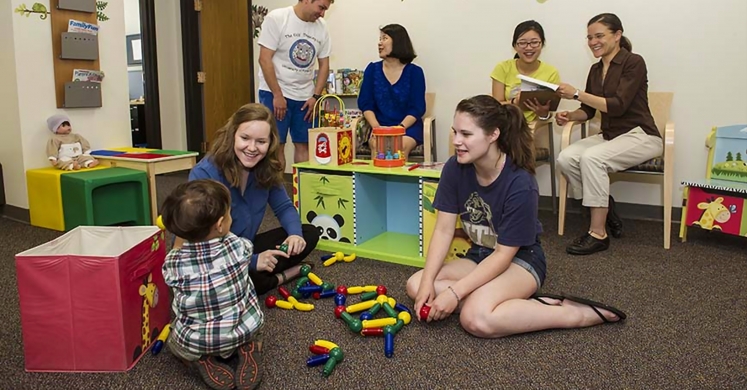Phipps Stories

Interview with a Scientist: Emily Braham
On Sat., Aug. 20 from 1:30 – 3:00 p.m., we will be featuring University of Pittsburgh Ph.D. student Emily Braham at our "Meet a Scientist" public program. The Science Communication Fellowship program at Phipps seeks to bring scientists and public audiences together in face-to-face public interactions that promote appreciation and understanding of current scientific research and its application. As part of this programming, Phipps hosts regular "Meet a Scientist" public programs in our Tropical Forest Palm Circle where visitors can engage with fellows, learn all about their research and occupations, and see the instruments and equipment utilized in their important work.
Phipps: Why did you become a scientist?
Emily: Numbers have fascinated me since I was a young child. As I grew older I wondered why some people struggled with math more than others. This curiosity fueled my desire to study differences in how people think and how they experienced math as children. As a scientist, I try to figure out how young children come to understand and learn about the world around them. In particular, I am interested in how they think about numbers and how parents and teachers can support their learning about math.
Phipps: What is the most exciting thing you’ve ever done at work?
Emily: I recently worked with families who were visiting a children’s museum. I loved seeing how children could learn new information and important math concepts through playing with their parents in this fun environment.
Phipps: What skills do you use in your job?
When you work with young children, you have to find creative ways to study what they think and know. This requires innovation, critical thinking, effective communication, and lots of patience.
Phipps: What is your favorite part of your job?
Emily: My favorite part of my job is engaging parents and teachers in conversations about children’s math development. Through my research, I hope to show people that supporting early math learning is just as important as supporting early literacy.
Phipps: Why is science education important?
Emily: Science education shows people that research is a valuable tool for answering questions and making discoveries. Scientists come from many different backgrounds and work to answer many different types of questions. By exposing children to these scientists, we make it more likely they will view science as a career option for studying a topic they care about.

